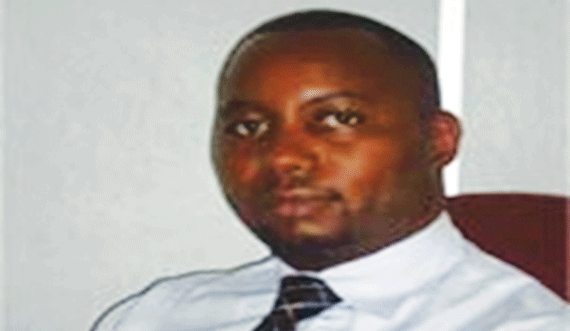
THIRTY-five-year-old Rose Manyenda had as one of her 2013 annual resolutions clearly written down in a diary at the beginning of the year: “To get out of debt by end of year”.
With the year 2013 closed, she is still mired deep in debt. “Things have not balanced at all in 2013,” she says to herself.
Sure as the sun rising again tomorrow, one of her personal resolutions again for 2014 will be — “to get out of debt”.
Rose is probably not alone in this situation. Indeed many people are crying about the liquidity crunch, literally saying mari haisi kutenderera/imali kayihambi, or losely, “money is not circulating”.
It is easy to fall into debt — especially if one is supporting a family with so many basic family needs. However, just because you find yourself deep in debt now doesn’t mean you have to stay in debt.
It is not easy, but you can literally dig yourself out of any debt situation provided you start on a committed action plan for doing so. Whether you’re in serious debt trouble or just want to pay down some long outstanding bills, it is important to have a basic plan of achieving a debt-free stress-free 2014.
Here are a few tips to get you started.
- Create a detailed personal financial inventory.
This is the first step. List your outstanding obligations down and rank them by amount, length of time owing and why you incurred the amount and so on.
- Chamisa under fire over US$120K donation
- Mavhunga puts DeMbare into Chibuku quarterfinals
- Pension funds bet on Cabora Bassa oilfields
- Councils defy govt fire tender directive
Keep Reading
Knowing how you accumulated the debt in the first place will help you in your quest to find the right solutions to get out. Note down what you are owed by others and compare this with what you owe and how much you’re spending your income and how much is going towards servicing your current obligations.
This will help you figure out how you can reduce expenditures in some areas to create financial space to repay your debts.
Once you have your priority debts listed down, you can begin to implement a debt reduction plan.
- Avoid taking on new debts
Clearly, the surest way of one being able to pay down ones debts is to avoid taking on new ones. Since when one is already over the top in debt, it makes perfect sense to start a debt reduction plan by stopping the accumulation of new debt.
- Negotiate with your creditors before defaulting on payments
If you think you can’t make an installment, call the bank manager or the people you owe money to and ask for a bit more time. This is called debt rescheduling. You can also renegotiate the terms of your debt. Negotiate outstanding interest and if possible ask for a lower rate of interest.
If you do this before actual default happens and your are specific and credible in your repayment plan your creditors will often will be more willing to work with you in your debt reduction plans. Once you have agreed on and signed off on new terms, be honorable. Stick to the agreed terms.
- Pay your high interest rate debt first
Prioritise paying the high interest debt first. Work on paying down the bank loan that charges the highest interest rate first and so on.
Set a goal to pay a sufficient amount toward that reducing that debt each month, while putting minimal payments toward your loans and obligations.
When that high interest debt is paid off, apply the extra money to the debt with the next highest rate. This strategy minimises your interest costs and enables the debts to be rapid at a faster rate.
- Avoid late payment charges
Sometimes people will incur extra charges on their obligations by simply not making payments early. Pay obligations early to avoid late payment penalties that simply add onto your debt burden.
- Seek advice, tell and involve someone
A debt counsellor, who can be a senior mentor in business, a church elder or someone that you trust and look up to can be a useful ally in achieving your debt reduction strategy. If you are married, discuss and set objectives with your spouse. You may just become a winning team.
Clive Mphambela is a banker and financial advisor. He writes in his capacity as advocacy officer for the Bankers’ Association of Zimbabwe. He can be reached on 04-744686, 0772 206 913, or [email protected]










